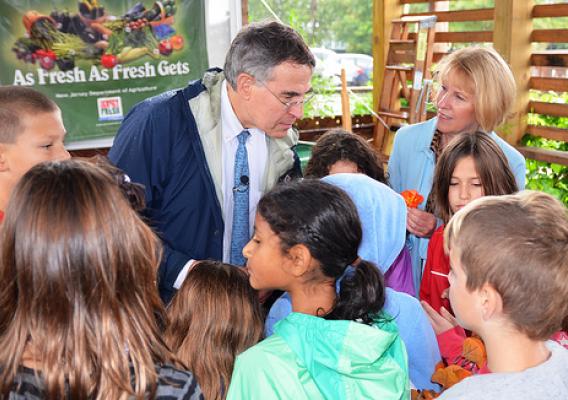As Chief Scientist at the U.S. Department of Agriculture (USDA), it is my privilege to lead the talented researchers and scientists throughout the department. USDA scientists work to solve some of the world's biggest problems in preserving our health through nutrition, feeding a growing planet, and managing our precious land, water, and energy resources. Every day, I am impressed by the innovation and accomplishments of our scientists. It is innovation and dedication of this kind that fuels economic growth and the creation of new industries, businesses, jobs, products, and services.
One major driver of successful innovation is technology transfer—the private sector adoption of research outcomes—of federally-funded research from universities and federal laboratories to the marketplace.
Often, research performed by federal scientists or supported by the federal government is leveraged by the private sector to serve the broader public. It creates jobs, spurs economic growth and enhances global competitiveness of the U.S. agriculture sector.




 Last week the Let’s Move Faith and Communities team hosted partners from across the country for a conference call on USDA’s new nutrition education resources. It was a packed hour. This year USDA has published the 2010 Dietary Guidelines for Americans, the new MyPlate food icon, and online resources including the comprehensive
Last week the Let’s Move Faith and Communities team hosted partners from across the country for a conference call on USDA’s new nutrition education resources. It was a packed hour. This year USDA has published the 2010 Dietary Guidelines for Americans, the new MyPlate food icon, and online resources including the comprehensive 